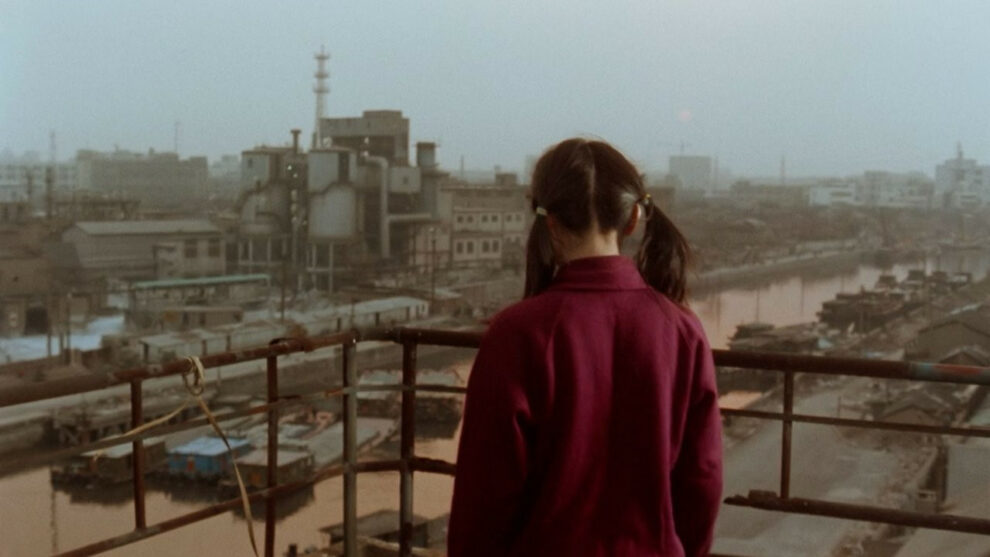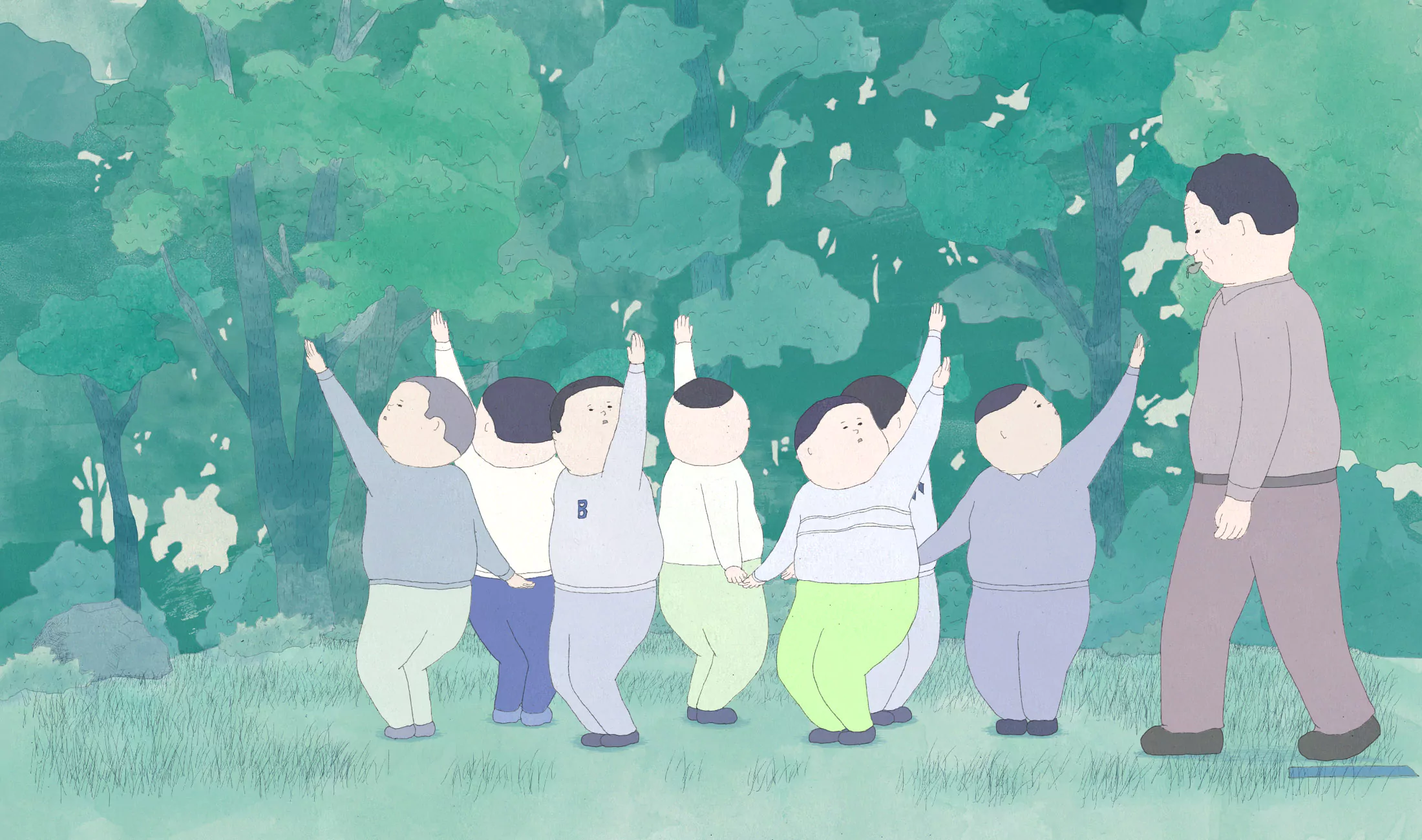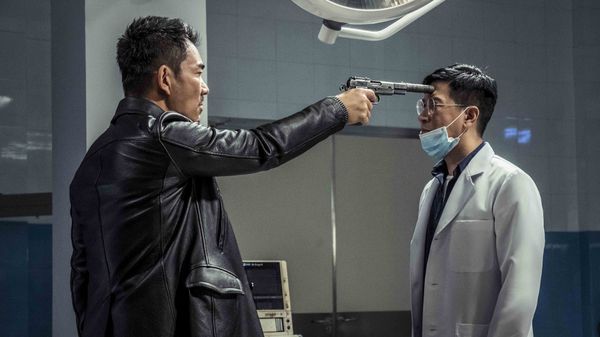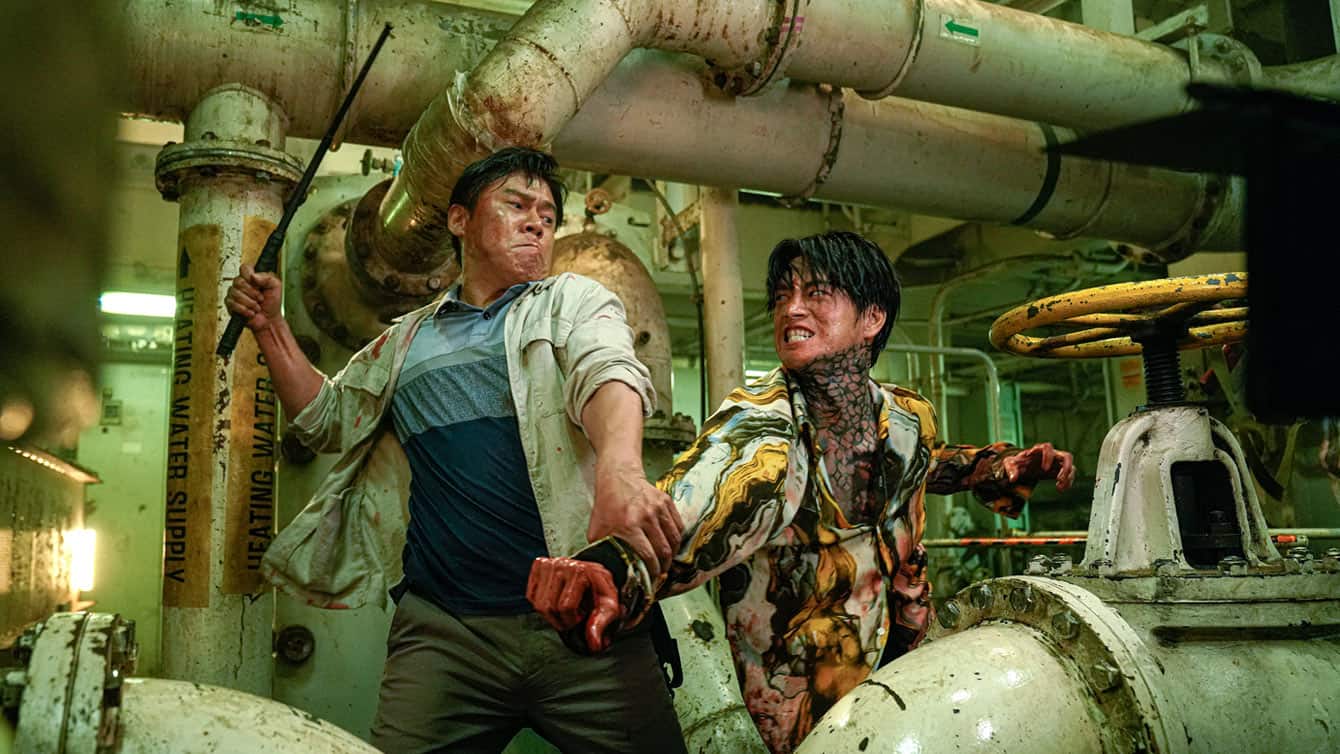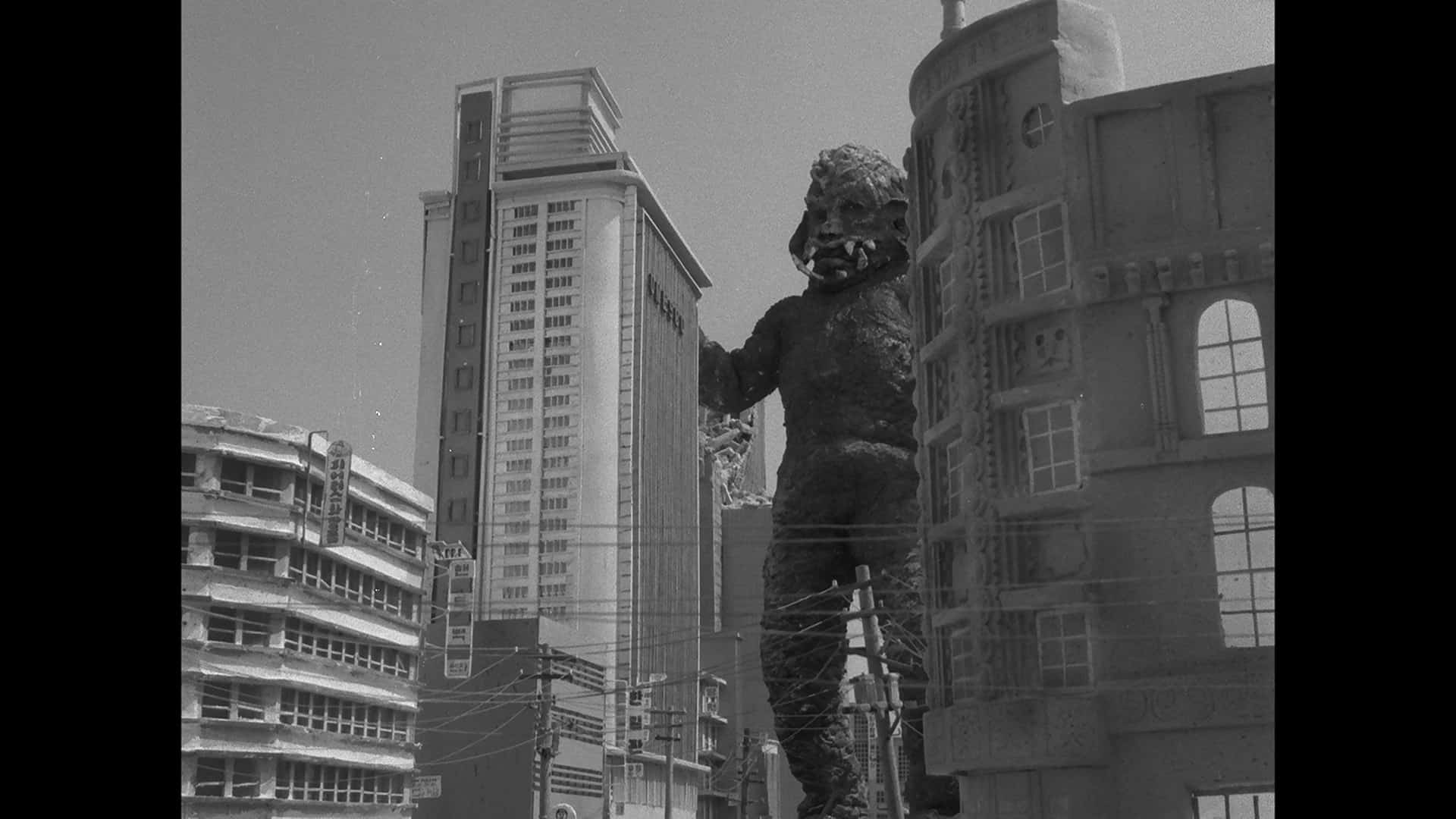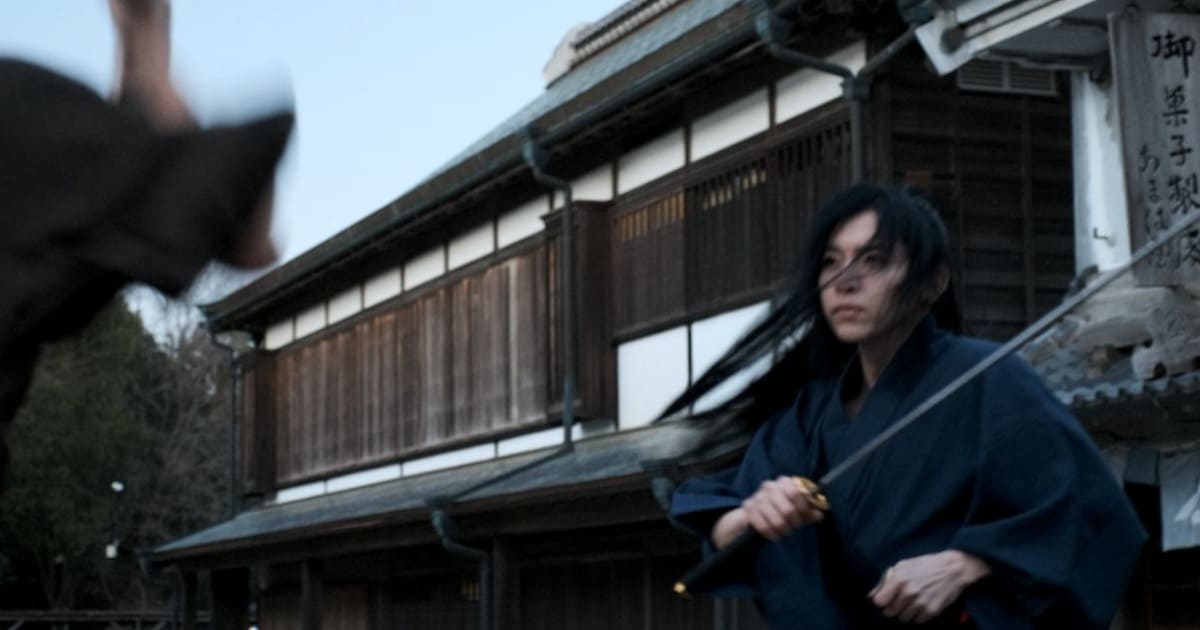After the Tiananmen Square protests and massacre in 1989, the Chinese government implemented censorship policies that led to the emergence of a film movement known as “the Sixth Generation”. Many movies, due to the absence of government funding, were produced in a short amount of time and on a tight budget. They had a raw, documentary-like style with handheld camerawork, extended takes, and naturalistic sound. One of the representatives of this generation is Lou Ye, whose third full-length feature, “Suzhou River”, despite garnering praise internationally, was banned in China. What's more, Lou was forbidden from making movies for two years after an unauthorized screening of this picture at the International Film Festival Rotterdam in 1999 where it won the Tiger Award.
Buy This Title
on Amazon by clicking on the image below
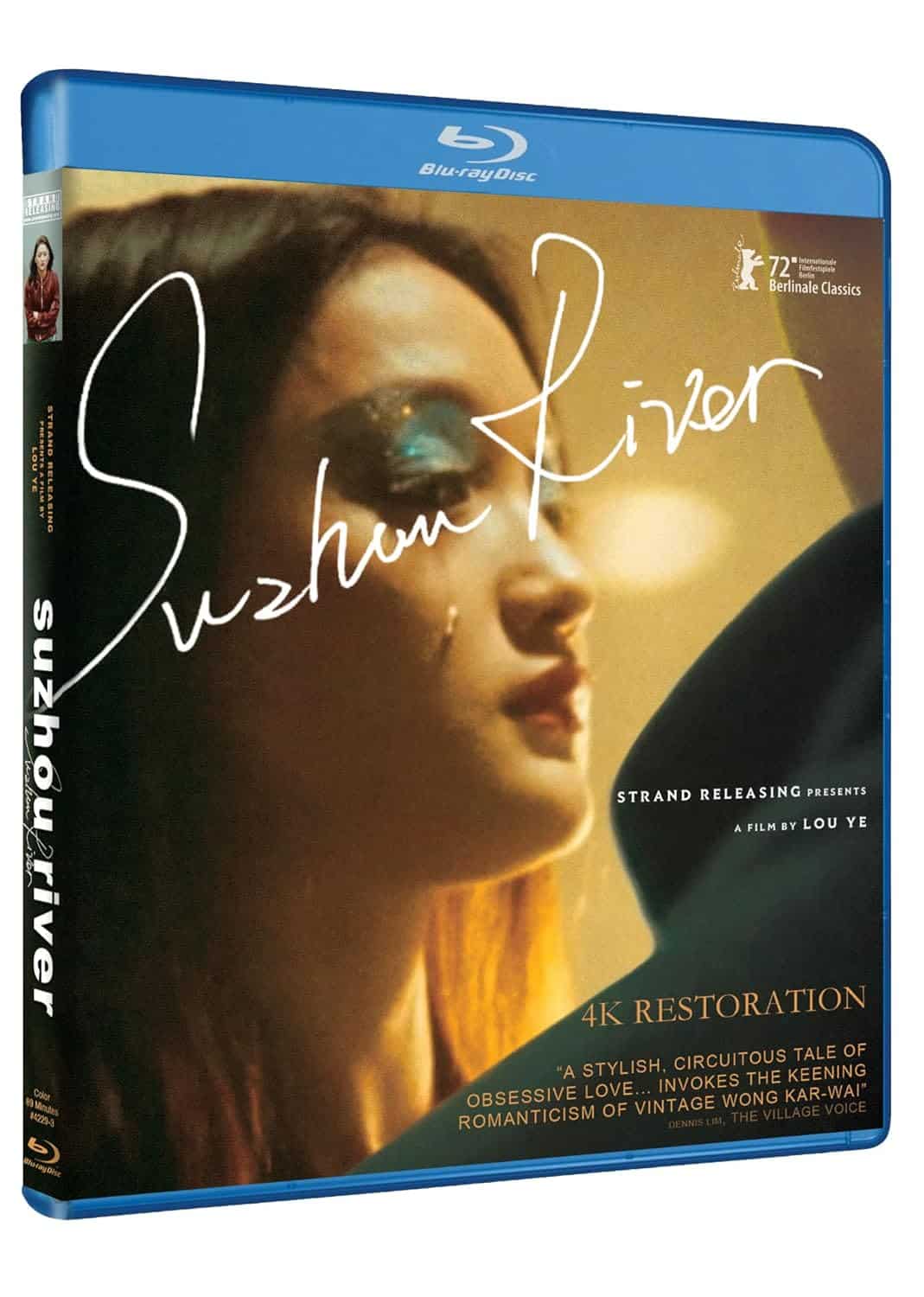
“Suzhou River” depicts a story which is narrated by the Videographer (Fang Zhang Ming). His job is to film the performances of Meimei (Zhou Xun), who acts as a mermaid swimming in a water tank at a pub in Shanghai. They fall in love with each other and form a complicated relationship. The Videographer contemplates on his experiences and recalls the love story between Mardar (Jia Hongsheng), a courier and small-time criminal, and Moudan (also Zhou Xun), the daughter of a wealthy businessman. As the story progresses, these two tales become more and more intertwined.
In “Suzhou River”, Ye explores themes typical for the Sixth Generation filmmakers, as he delves into the urban reality of his homeland. Although, instead of showing off Shanghai's modern side, the movie presents the gloominess of the Suzhou River area, surrounded by factory buildings and abandoned warehouses. The director skillfully mixes grim realism with the extraordinary elements of magical realism, such as an appearance of a mermaid. Due to intricate storytelling, the movie is quite challenging, and the viewer must remain cautious throughout the whole picture.
The location and title of the film seems to hold significance. Initially, the old factories and warehouses around the Suzhou River were intended for demolition to accommodate the construction of modern high-rise buildings in Shanghai's rapidly developing city center, part of efforts to revitalize the Suzhou River area socially and economically. However, due to initiatives led by artists in the late 1990s, this area has been designated as a protected heritage zone, leading to the conservation of many warehouses. These preserved spaces now serve as hubs for Shanghai's thriving art scene. Considering this, one could assume that Lou Ye's picture is a kind of tribute to the determination of Chinese artists.
In terms of acting, definitely worth noting is the standout performance by Zhou Xun, who portrays two characters – Meimei and Moudan. The actress demonstrated immense talent, impersonating two similar characters in such a distinct manner that the viewer is unable to tell whether they are actually different people until the end of the movie. The entire plot and its mystery hinge on the actress's performance – her remarkable skills were honored with an award for Best Actress at the Paris Film Festival, and a nomination for the Best Actress at the Chinese Film Media Awards.
The movie was shot by Wang Yu in a neo-noir aesthetic, with unbalanced framing and appropriate use of lighting, creating a sense of mystery and sorrow. The audience is transported into a world full of suspense and uncertainty, as characters navigate through the obstacles of modern urban life. The film presents a somber portrayal of Shanghai, with a dreamlike atmosphere that evokes a haunting sense of unreality. A very intriguing stylistic choice is the storytelling from the perspective of a single character, which enhances the sense of uncertainty and subjectivity of the depicted events.
“Suzhou River” is an experimental romance with a story that is relatively difficult to understand, at least at the beginning. One might get the impression that the director chose this style to compel Chinese censors to exert more effort in trying to comprehend the work. The film's meaning seems elusive and complex, as it is full of ambiguity and melancholy, but at the end delivers an engaging and poetic experience.


